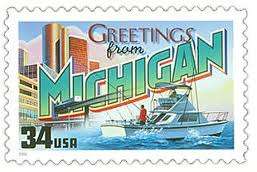Michigan Bill Regulating Charity Gambling Passes Through Senate
A bill that would formally regulate charity gambling events in Michigan passed through the state’s Senate Wednesday by a 34-4 vote and is now on to the state House for further consideration. Senate Bill 187 doesn’t actually change a whole lot when it comes to the operation of “millionaire parties,” but it would create a set of rules specifically for such charity events, rather than having them tacked on to the state’s Bingo Act, as they have been.
Millionaire parties are essentially real gambling events, such as a raffle or a real-money poker tournament, but with the goal of earmarking the proceeds for charity. They are so prevalent and so popular in Michigan that the Michigan Gaming Control Board not only has a portion of its site dedicated to them, but it even provides a list of upcoming Millionaire Parties for prospective participants.
 As the popularity of millionaire parties grew, people set up card rooms and gambling halls for the sole purpose of hosting the fundraisers. These businesses basically became casinos in their own right, often described as “floating casinos,” yet they did not have to be licensed like one. They didn’t deal in anywhere close to the volume of money that a real casino does and they were certainly supporting charity, but at the same time, they are still pulled a profit by being the gambling supplier and operator for the organizations seeking to raise money. Rather than hauling all the equipment and setting everything up at a client’s venue (which many millionaire party operators did), they just set up their own shop and let the events come to them. They got paid for their service (and made more money by selling food, drinks, etc.) and the organizer of the event still raised charitable funds.
As the popularity of millionaire parties grew, people set up card rooms and gambling halls for the sole purpose of hosting the fundraisers. These businesses basically became casinos in their own right, often described as “floating casinos,” yet they did not have to be licensed like one. They didn’t deal in anywhere close to the volume of money that a real casino does and they were certainly supporting charity, but at the same time, they are still pulled a profit by being the gambling supplier and operator for the organizations seeking to raise money. Rather than hauling all the equipment and setting everything up at a client’s venue (which many millionaire party operators did), they just set up their own shop and let the events come to them. They got paid for their service (and made more money by selling food, drinks, etc.) and the organizer of the event still raised charitable funds.
The MCGB tried to implement regulations last year, but failed to do so. This year, emergency regulations were passed to govern millionaire parties. Said regulations shut down the poker rooms.
“Some of these guys have made millions from casino gambling without having to get a license or having to report their revenues,” David Murley, deputy director of the Michigan Gaming Control Board, told The Detroit News in March. “It’s fair to say millions of dollars weren’t reported.”
Dane Nickols, who worked with two charities in the Lansing area, liked using the poker rooms as the venues for his millionaire parties because it was easier and they were able to attract more attendees.
“I don’t mind giving them half of what I bring in, because my half is 400 to 800 percent more than I was making on my own,” he said.
As it stands now, the regulations aren’t overwhelming, but they do limit the size of millionaire parties. Organizations can pay a $50 fee for a license up to four times per year. Each license is good for four days and one party can be held each day, so an organization can hold as many as sixteen gambling events per year. They are limited, however, to accepting no more than $15,000 for chips per day. Gaming suppliers are limited to earning 45 percent of the gross profits for an event.
Nobody under 18-years of age is allowed to gamble at a millionaire party and if alcohol is served, there must be a separate area for those under 21 to play.
SB 187 would codify the regulations for millionaire parties, separating them out from the Bingo Act, which wasn’t really designed to deal with these events. The fees and limits on revenue for suppliers would remain the same, as would the $15,000 limit per day. One difference, though, is that if the licensee uses its own location and doesn’t hire dealers or a gaming supplier, then the daily limit is set at $60,000 divided by the number of days during which events are held (up to four, as before). Thus, to reward licensees for not using millionaire party cardrooms, the new regulations would allow them to make $60,000 no matter what (assuming they attract enough attendees). Considering one would assume the organizations that are trying to raise money with millionaire parties don’t typically have unlimited resources, being able to maximize revenue in a single day rather than having to schedule four days of events would probably be a welcomed change.
The bill also reduces the resources required of the charitable organization, requiring just two representatives from the organization be in attendance rather than the current three.
State Senator Rick Jones (R-Grand Ledge), the man who introduced the bill, is not seeing eye-to-eye with MGCB director Richard Kalm. The MGCB had been working on its own new set of rules and Jones had been working with the Board, but when they couldn’t agree on everything, Jones decided to go forward with his bill.
“It seems we’ve reached an impasse, and I would hope that he would stop being the Christmas Grinch and let the charities have a little bit of charity money for all of the children and veterans and other people that they help,” Jones told MLive.com.
The MGCB had its own concerns, saying, “We thought we would see a bill that includes criminal provisions to avoid fraud, hold bad guys accountable and protect charities. This bill does not include those criminal provisions. Our intent has always been to protect charities using millionaire parties as fundraisers for their good works.”



















COMMENTS